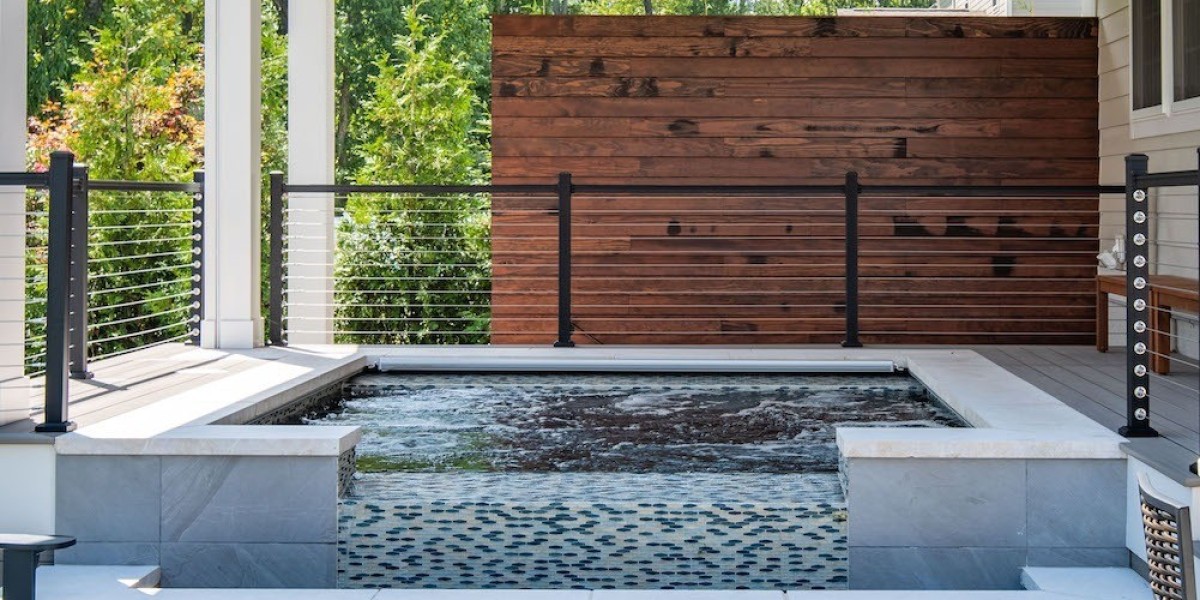Why Does Algae Grow in Pools and What Is It?
Algae are tiny plants that can grow quickly in your pool water. They often look green, but they can also be yellow, black, or even pink. Algae thrive in warm water, sunlight, and areas with minimal water movement.
Here’s why algae might appear in your pool:
Low chlorine levels
Dirty pool filters
Not cleaning the pool walls and floor
Hot weather and sunlight
Poor water circulation
Once algae start growing, they can spread fast. Besides making your pool look green or cloudy, algae make surfaces slippery and unsafe.
How Residential Pool Service Helps Prevent Algae
Residential pool service Fairfax means professionals come to your home to take care of your pool. They help prevent algae by:
Testing and balancing water chemicals – keeping chlorine and pH levels correct
Brushing walls and steps – removing algae before it takes hold
Vacuuming debris – cleaning dirt and leaves that feed algae
Checking filters and pumps – ensuring proper water flow
Shocking the pool – adding extra chemicals if algae start to appear
Regular pool service is one of the best ways to keep algae away and your pool safe for swimming.
How Often Should You Schedule Pool Service?
How often you need service depends on how much you use your pool and your local weather. Many homeowners choose:
Weekly service – Best for pools used often or in warm climates
Bi-weekly service – Good for lighter use
Monthly checks – Possible for pools used very rarely
Weekly service is the safest choice because algae can proliferate if your pool is neglected.
Can I Prevent Algae Myself?
Yes, you can help prevent algae on your own by:
Testing your water weekly
Keeping your pool clean
Running your pump daily for good water movement
Brushing walls and steps
Shocking your pool regularly
However, algae can still sneak in even if you try your best. That’s why many people hire a professional residential pool service for peace of mind.
Signs Your Pool Has Algae
Look for these signs:
Green, yellow, or black patches on pool surfaces
Cloudy or colored water
Slippery steps or walls
Strong, unpleasant smell from the water
If you see these signs, call a pool professional quickly to stop algae from spreading.
What Is Pool Renovation?
Sometimes, even with good maintenance, your pool might look old or have damage. That’s where pool renovations McLean, come in.
Pool renovation means updating or fixing parts of your pool to make it look better, work better, or stay safe. Renovations can be minor fixes or big projects.
Reasons to Renovate Your Pool
Here are some reasons you might consider a renovation:
Cracked or chipped tiles
Stained pool surfaces
Old or outdated pool designs
Leaks or water loss
Desire for new features like waterfalls or lights
Energy-saving upgrades, like new pumps or heaters
Renovating your pool can also help keep algae away by removing rough surfaces where algae like to grow.
How Pool Renovation Helps Prevent Algae
A renovation can help in many ways:
Smoother surfaces – Old, rough plaster or tiles give algae places to hide. New surfaces are smoother and easier to clean.
Improved circulation – Newer pumps and filters keep water moving, making it harder for algae to grow.
Better water chemistry – Updated systems help maintain chemical balance.
Modern coatings – Some new pool finishes resist algae growth.
So, a renovation doesn’t just make your pool look new—it can also make it easier to keep algae away!
How Long Does a Pool Renovation Take?
Time depends on the size of the project:
Minor repairs: A few days to a week
Resurfacing: About 2-3 weeks
Complete renovation: 3-6 weeks or longer
Weather, materials, and local rules can affect the timeline.
Difference between pool service and pool renovation
Pool service and pool renovation are two different things for keeping your swimming pool in great shape. Pool service means regular care, like cleaning the water, balancing chemicals, brushing walls, and checking equipment to keep your pool safe and sparkling week after week.
On the other hand, pool renovation involves bigger projects, like repairing cracks, resurfacing the pool, replacing tiles, or even changing the pool’s shape and features. Renovation makes old pools look new again and improves how they work. While pool service is ongoing maintenance, renovation is a one-time job to upgrade, repair, or transform your swimming pool.
Is Pool Renovation Expensive?
Costs vary depending on what you want to change. Here’s a rough guide:
Minor repairs: A few thousand rupees or a few hundred dollars
Resurfacing: More costly but worth it for a fresh look
Full remodels: Higher price, but increases your home’s value
Always get a quote before starting. Many companies offer payment plans.
Pool renovation can cost a little or a lot, depending on what you want to change. Minor repairs are affordable. However, larger projects, such as resurfacing the entire pool, adding new lights, altering the pool shape, or installing modern features, can be more expensive.
Should I Renovate My Pool in Winter?
Winter is an excellent time for Pool Renovation Fairfax because:
You’re not using the pool as much
Contractors may have more availability
Your pool will be ready by summer
Final Thoughts
Owning a pool brings joy, but it also needs care. Regular residential pool service helps prevent algae and keeps water safe and sparkling. And if your pool looks tired or has problems, pool renovation can bring it back to life—and help stop algae for good.
By combining good maintenance and timely upgrades, you can enjoy a clean, beautiful pool for many years to come.






